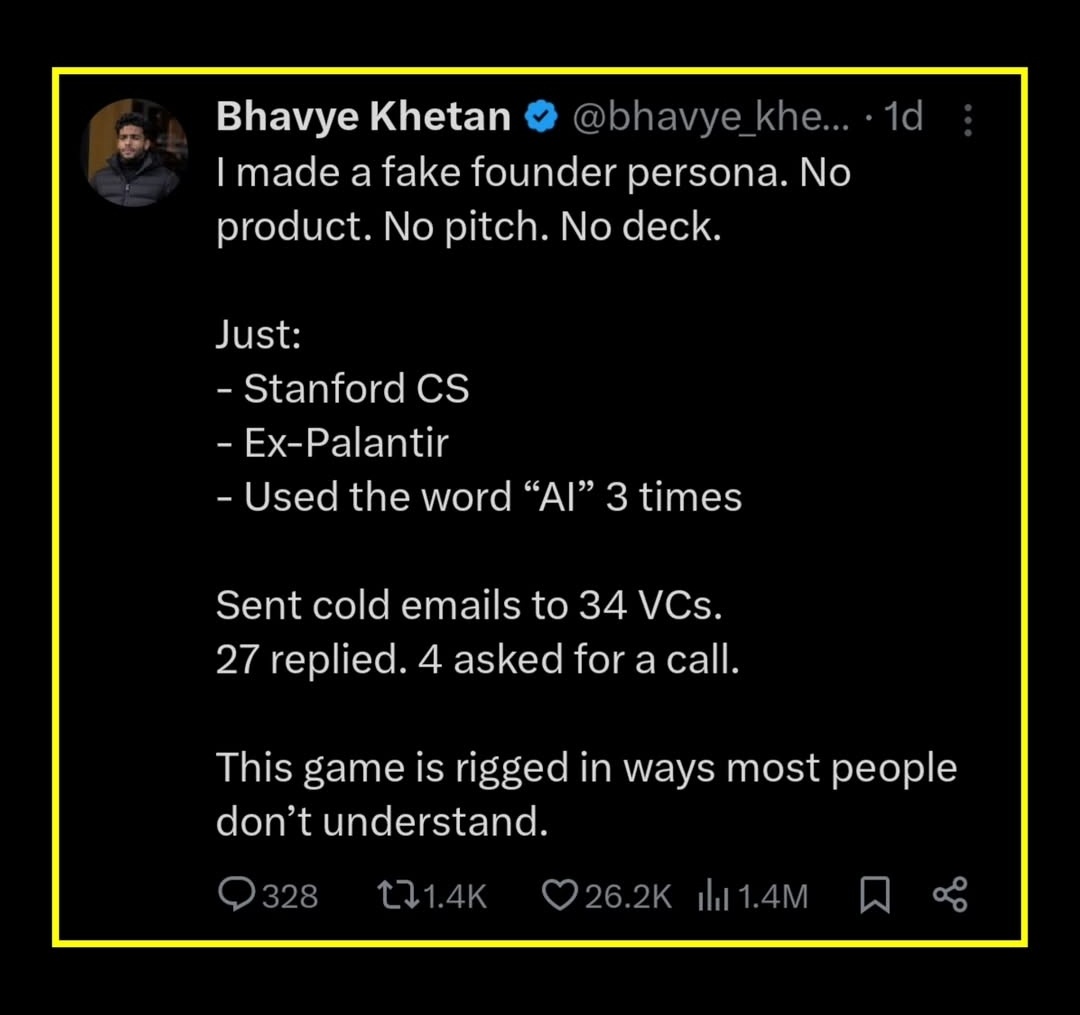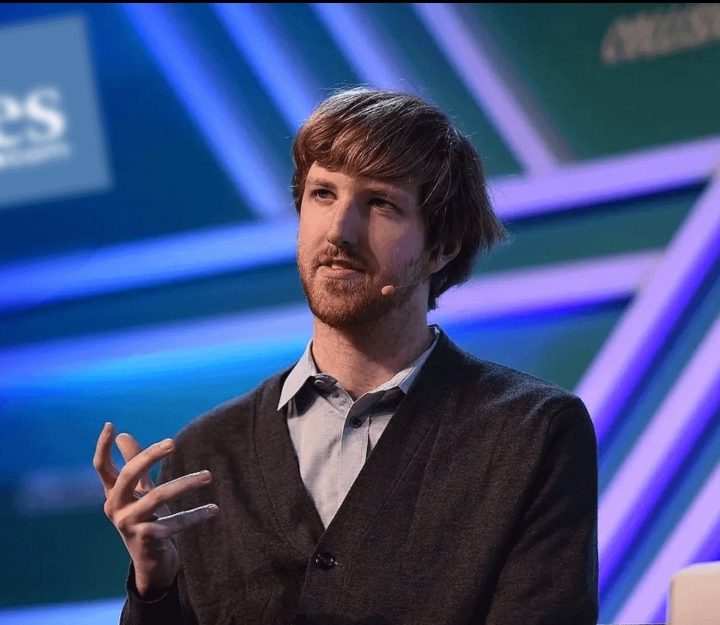Back
Vikas Acharya
•

Welbe • 8m
𝗗𝗶𝗱 𝗮 𝗙𝗮𝗸𝗲 𝗙𝗼𝘂𝗻𝗱𝗲𝗿 𝗝𝘂𝘀𝘁 𝗘𝘅𝗽𝗼𝘀𝗲 𝘁𝗵𝗲 𝗩𝗖 𝗪𝗼𝗿𝗹𝗱? Bhavye Khetan, a graduate from UC Berkeley who is of Indian descent, did a little test. He wanted to show that the world of starting new companies and getting money from investors (VCs) might be a bit unfair or "rigged." His main point was to prove that simple things that look impressive like going to a famous university or using trendy tech words can grab the attention of investors, even if you don't actually have a real product, a solid plan, or a business idea. How he did his experiment: 1.Made up a fake identity: Bhavye pretended to be a founder, even though he wasn't really starting a company. 2.Used impressive details: He made sure his fake identity included powerful-sounding credentials: "Stanford Computer Science" (a very respected school for tech) and "Ex-Palantir" (meaning he used to work at Palantir, a well-known tech company). 3.Used popular words: In his emails to investors, he made sure to use the buzzword "AI" (Artificial Intelligence) three times. 4.Sent out emails: He sent emails to 34 different venture capitalists (people who invest in new companies). Surprisingly, 27 of those investors wrote back to him, and 4 of them even asked to have a phone call with him! So, even with no real product or plan, just by using these impressive-sounding details and buzzwords, he got a lot of attention from investors. This made him feel that the system might be focused too much on appearances rather than real ideas.


Replies (22)
More like this
Recommendations from Medial
CEO Dr Abhishek Bhatt
World wide daily new... • 1y
Once upon a time, in the bustling city of Delhi, there was a man named Dr. Abhishek Bhatt. Not only was he a CEO of a successful company, but he was also a PhD history gold medalist from Delhi University. His intellect and wit were unmatched, making
See MoreSuman solopreneur
Exploring peace of m... • 1y
lesson from millionaire fastlane Rahul was seated on the hospital bench, the doctor’s voice echoing in his mind: “If only he had arrived earlier.” The health scare of his father made him understand that he had been pursuing wealth while ignoring wh
See More
Anonymous
Hey I am on Medial • 2y
Wanted some suggestions - so I have a roommate, exceptionally talented, like really smart. He started building a startup and for that reason his gf whom he really loved, brokeup. He's is a guy who scaled a startup to $1m+ ARR just being a intern when
See MoreSourav Kumar Sahoo
•
AMIGOS ESPORTS • 1y
A few days ago we were looking for a gfx designer. I asked him for his samples and he gave me some. His price was 2000 rupees for a logo. One of my colleague also asked another designer for samples and when I saw them, the designs were exactly the s
See MorePiyush
Aspiring Entrepreneu... • 1y
A boy named yash is currently studying in IIM Indore. He has opted for the BBA MBA integrated course duration of which is 5 yrs. He lived in a tier 2 city and went to indore to get exposure to different opportunities because he knew that this wasn't
See MoreDownload the medial app to read full posts, comements and news.



























/entrackr/media/post_attachments/wp-content/uploads/2021/08/Accel-1.jpg)
















